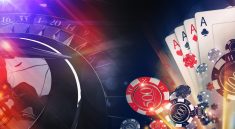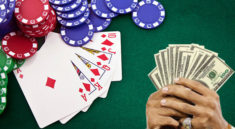Blackjack is not just a card game; it’s a fascinating world of probabilities, strategy, and psychology. For those who play seriously, it offers valuable insights into understanding dealer behavior. Mastering a Blackjack Strategy (블랙잭전략) does more than improve your odds of winning—it trains you to recognize patterns, make data-driven decisions, and anticipate the moves of the dealer.
If you’ve never taken a closer look at how blackjack strategy intersects with dealer behavior, you’re missing out. Here, we’ll explore the key benefits of employing blackjack techniques to enhance your understanding of dealer behavior and make smarter game decisions.
Recognizing Patterns Can Help Predict Dealer Decisions
Blackjack may seem like a game of luck on the surface, but it’s largely dictated by patterns and probabilities. The dealer must follow specific rules for every hand they play, which makes their behavior somewhat predictable if approached strategically.
By studying these dealer rules, players can start recognizing patterns. For example:
Dealer Hits Below 17: Most dealers are required to draw cards until their hand totals at least 17. This rule gives the player an important advantage in terms of predicting when the dealer is likely to bust (go over 21).
Dealer Stands at 17: Knowing this limits the range of possible hands the dealer might hold, guiding you to adjust your approach accordingly.
When you use blackjack strategies, such as basic strategy charts or card counting, your understanding of these patterns improves, sharpening your ability to anticipate what the dealer’s next move might be.
Learning Statistical Probabilities Builds Confidence
Blackjack is one of the only casino games where statistical knowledge can directly influence your success. Studying the odds of your own hand and the potential outcomes of dealer cards helps you make optimal decisions.
For example:
What are the chances that the dealer will bust if their upcard is a 6? (It’s roughly 42%.)
What is the probability that the dealer pulls a face card (10-value card) when hitting? (Approximately 31%.)
When blackjack players deeply engage with probabilities, they learn to analyze the dealer’s upcard against their own cards and react with confidence. This habit of decision-making based on data solidifies a logical, calm approach to the game—something beneficial far beyond the blackjack table.
Strategic Plays Train You to Weigh Risk and Reward
Every decision in blackjack involves weighing risks against potential rewards. For instance, whether to hit, stand, double down, or split depends not only on your cards but also on what the dealer’s upcard reveals.
Here’s how strategy improves awareness:
Doubling Down: For example, doubling down can be a favorable move when your total is 11, and the dealer shows a lower upcard such as 4, 5, or 6. These scenarios increase the likelihood of a dealer bust.
Knowing When to Avoid Splitting: Experienced players know not to split certain pairs, like 10s, when the dealer shows a weak hand—because the higher total offers stronger winning odds.
By practicing strategy, you develop the ability to spot these opportunities and limit unnecessary risks. This understanding directly ties into predicting and outmaneuvering dealer behavior.





